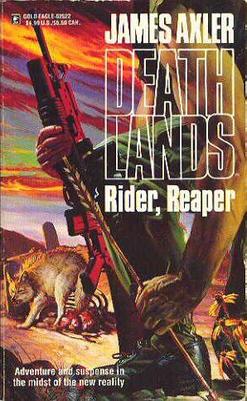 I liked this Deathlands book somewhat less than usual, for a variety of reasons, which I will now elucidate.
I liked this Deathlands book somewhat less than usual, for a variety of reasons, which I will now elucidate.
1) The plot was not organic, and instead was in service of a clear goal that took me out of the writing. See, albino knife-throwing murder machine Jak Lauren left the group a long time ago, to start a life on a ranch in New Mexico. Yet, the in media res opening of Rider, Reaper immediately took the happy ending away from him, solely so the series could have him back. Clumsily enough so that I didn’t even realize it was that style at first, and instead thought I had accidentally picked up the wrong book. (On the bright side, I like him. But man, the clumsiness. Maybe if his family had been murdered during one of the stretches of time when everyone else hadn’t been right nearby, and then found him along the way instead? I dunno.)
2) Due to circumstances, they team up with a group of Navajo warriors to take down the bad guys of the week, and those warriors are portrayed as hot-headed savages worthy of a team-up with 19th century cowboys showing that the white way is manifestly the correct one, instead of 22nd century survivors of a society-ending nuclear war. It was just so bad, and all the moreso for me being used to this series’ shockingly common egalitarianism. Ugh. I am pretty sure the author hasn’t changed yet and won’t for a long time, so I hope it is a one-off problem, and not a sign of things to come due to editorial changes or some other permanent shift.
All that said, the set up of the next few books is pleasing to me, and I continue to look forward to where things are going. Please oh please let this be merely a small bump in the road.
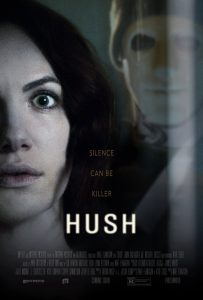 I’m excited by the Olympics, because it apparently means nobody is airing any opposing television, which means I have time to watch movies! Hence
I’m excited by the Olympics, because it apparently means nobody is airing any opposing television, which means I have time to watch movies! Hence 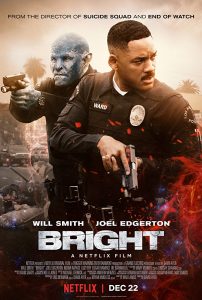 When I was in LA in mid-December, I saw posters everywhere for a Netflix movie called
When I was in LA in mid-December, I saw posters everywhere for a Netflix movie called 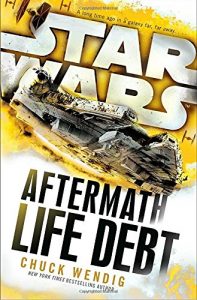
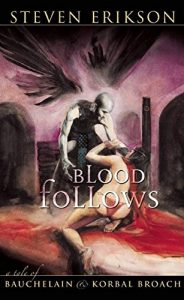 There is one problem with publication order, and that problem is when small run publications are later gathered into collections. Well, to be fair, it’s not a problem with reading; you just read the part of the book that contains the story you were reading in publication order, and then put it down until later. But it is a problem for me specifically, since I include links to the book I read from, and yet
There is one problem with publication order, and that problem is when small run publications are later gathered into collections. Well, to be fair, it’s not a problem with reading; you just read the part of the book that contains the story you were reading in publication order, and then put it down until later. But it is a problem for me specifically, since I include links to the book I read from, and yet 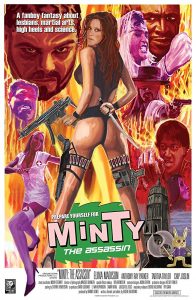 While at my folks’ for the weekend, I ended up diving into the free streaming service Dish Network has to offer, in search of the Maze Runner movies. Unsuccessfully, as it happened, but while plumbing the depths of the “action movies from 2010s” section (since they don’t seem to have a search function), I stumbled across
While at my folks’ for the weekend, I ended up diving into the free streaming service Dish Network has to offer, in search of the Maze Runner movies. Unsuccessfully, as it happened, but while plumbing the depths of the “action movies from 2010s” section (since they don’t seem to have a search function), I stumbled across 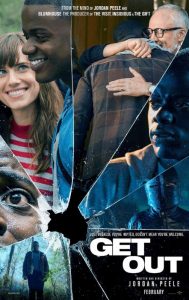 A year late, right? Summary, in case you’re as far behind the curve as I am: A mixed race 20-somethings couple visits the lady’s white family’s estate out in the boondocks (or, as you call it when you’re rich, “by the lake”), and the dude feels less comfortable / more out of place with every passing hour. Especially once the annual reunion gathering thingy kicks into gear. I wish I could say that the year of knowledge that
A year late, right? Summary, in case you’re as far behind the curve as I am: A mixed race 20-somethings couple visits the lady’s white family’s estate out in the boondocks (or, as you call it when you’re rich, “by the lake”), and the dude feels less comfortable / more out of place with every passing hour. Especially once the annual reunion gathering thingy kicks into gear. I wish I could say that the year of knowledge that 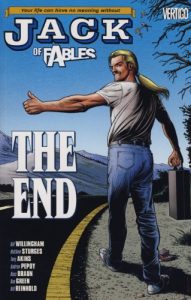 The final volume of Jack of Fables is hard to review for two reasons. If I’m being honest with myself, the series had outstayed its welcome since probably
The final volume of Jack of Fables is hard to review for two reasons. If I’m being honest with myself, the series had outstayed its welcome since probably 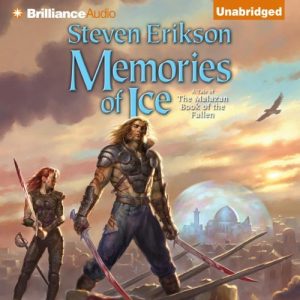 My original review of
My original review of 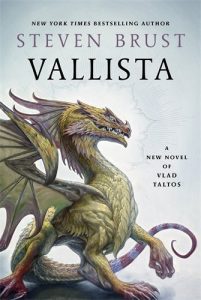 New Vlad book! Which you’ll know if you’re a long time reader here is kind of a big deal. You’ll also know that the series is coming towards an end[1], which explains why I can say very little. Basically, Vlad Taltos is an assassin, he’s made powerful enemies and powerful friends, and this particular book is more about the latter than the former. Worth knowing:
New Vlad book! Which you’ll know if you’re a long time reader here is kind of a big deal. You’ll also know that the series is coming towards an end[1], which explains why I can say very little. Basically, Vlad Taltos is an assassin, he’s made powerful enemies and powerful friends, and this particular book is more about the latter than the former. Worth knowing: